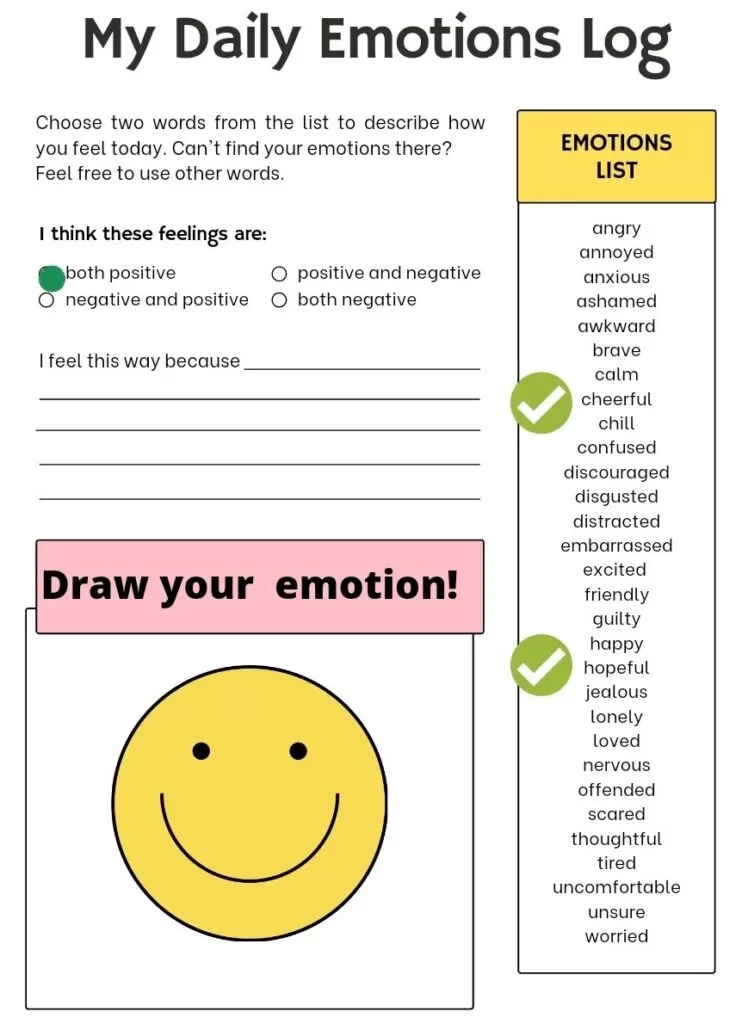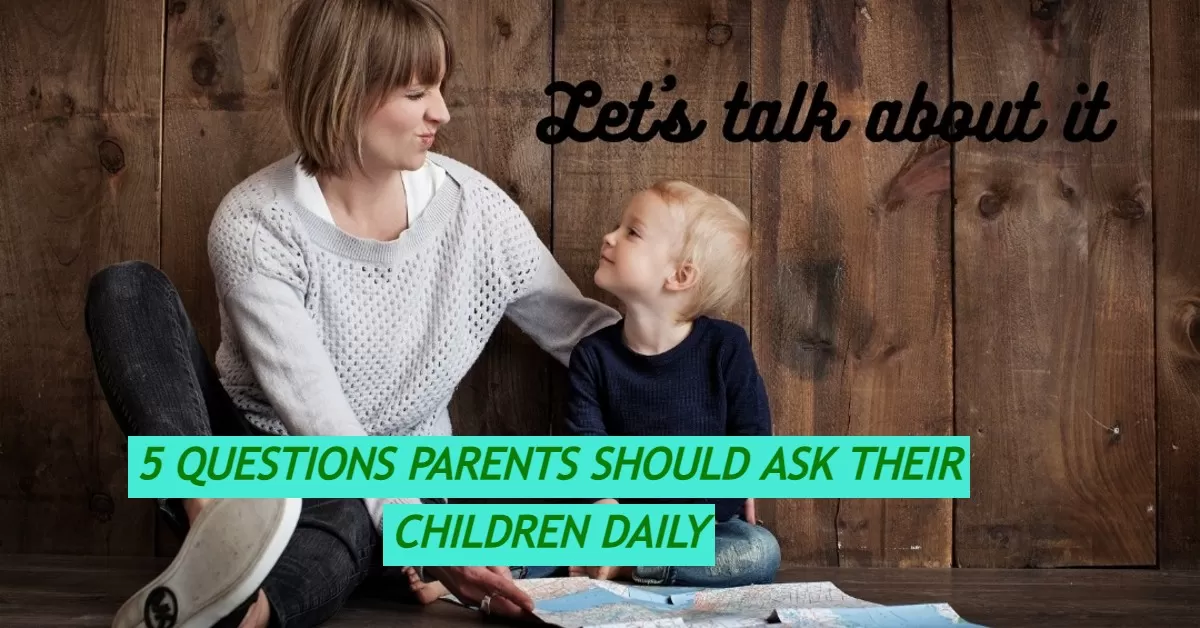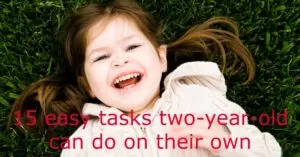Children’s growth and development are in direct proportion to the bond between the parent and the child. Stronger the bond, stronger the mental and emotional growth and development of the children.
As children’s body grow, their brain develops too. Like, the physical health of the child depends on what nutritious food the child eats. In a similar manner, the childhood experiences form their mental health.
From early childhood, they begin learning how to relate things with others and how to regulate emotions. And any disruption in this process can have direct consequences on their little mind. So, parents should lay the foundation of the stone i.e. “parent-child bond” from very early.
Good parenting techniques can be helpful.
The question is how can we connect with our children? How can we make the bond strong and healthy? What should we do to make it special? Do we need to learn and train well?
Well, there are no special skills we needed. Neither do we need to spend plenty of time. We can begin such connections from simple conversations.
So here are some questions for parents to ask their children to help them succeed in life. Well, keep in mind that these are a general set of questions that work regardless of age and background. Though, you may start asking them from an early age of 5-6 years.
The younger the brain the easier should be the answers. Regular practice may be fruitful in long run.
Table of Contents
5 questions every parent should ask their children
How was your day today?
A very common question to begin a conversation with your child. Asking your child about his/her day at school, college, or office and sharing yours, to and FRO, can be impactful. A child may feel good or bad, positive or negative, low or high about something that has happened the other day. He/she may or mayn’t be interested to talk about it. Even discussing a small incident that took place can be thoughtful.

By discussing things we share our personal experiences. Sometimes we get to know about new things or sometimes an important piece of information. Some incidents teach lessons to us and some experiences gives us new knowledge. All for our benefit. By speaking our heart out we feel relaxed, connected and concerned. It can be any topic.
It is a good practice to have a 5-minute conversation with children on common topics. This makes the parent-child relationship close and healthy.
How are you feeling today?
Mood swings are common in children, which are not long-lasting but are effective. They easily get distracted as soon as they find the interests of their choices. The younger they are, the more becomes the frequency. Sometimes they become obnoxious, irritating, disgusting, or difficult to handle. The repercussions could be nasty.
Like, a toddler may throw tantrum for a toy or a teenager may become fussy on selecting a gadget of his/her choice. All are mood swings and last only until their wish or demand is fulfilled.
As a parent one needs to understand the reason behind it and respond (not react) according to it.
Many times, we fail to express our feelings. We keep it inside and it becomes forever. We do so in the fear, of judgment, to become the talk of the town, or may sound insensitive. There could be other reasons as well. The list is so on. Next time, if happens the same, the load gets added on. Then a day comes, beyond the control we lose our temper and we burst out our anger or frustration. Isn’t?

This is common and it happens with most of us. But none of us have ever given a thought, why this happens so?
We have always observed this and believed, “it is okay to be so and move on”, once we cool down. Though, this feeling of adding burden, for several days, and then bursting it out at one go, hampers our emotions.
Today’s parents are no longer similar to the generation who has raised them. So are their standards. They want the child to be confident, independent, happy, and strong. Strong enough to tackle his/her emotions in all phases of life.
This one small question, from an early age, and we can bring the change to break the vicious circle.
“A child, who expresses his/her feeling is less likely to be unhappy than the one who does not do so.”
What are you grateful or thankful for today?
By God’s grace, we are showered with several blessings. The only thing is we need to realize the value of it and should not take it for granted. Let your child understand the importance of small things in life and be grateful for them. They should be able to express their gratitude for the things that belong to them. They should be thankful to the people who do work for them.

Like you can ask your child to prepare a gratitude tree. This way he/she should be able to realize that he/she is actually blessed with a lot of things that many others are not. Developing this habit he will count on his blessings instead of complaining.
What one thing do you like or dislike the most about the day?
This question will help the children to know themselves better, what they like and whatnot. You can give choices. Like, choices of the food they want to eat, the games they want to play or the clothes they want to wear. Giving them choices will enhance their decision-making skill. They will understand their likes, dislikes, interests, and hobbies.
You can also ask the child to make ‘Do’s and Don’s things for themselves. This may prove helpful in setting priorities, time management, or setting targets. Self-discipline begins with such activities.
What is your opinion?
This is a critical question and it is directly or indirectly related to the above four. So, this should be asked when the above ones have been discussed to form a topic of the day. A healthy discussion/debate can be done by exchanging relevant points.
There is no such thing as “right or wrong”. You may favor one thing for any particular reason and your closed one may find the other side better. So, it’s all about one’s perspective, how the person thinks. Everyone has their own opinion, views, or judgments. There is always the other side of the story which goes unheard. So, based on one side we can not decide or judge.
Asking your children about their opinion will give them a chance to open the wings of their tiny brains and think broadly. They gain the confidence to express their views without getting judged. Learning to handle any situation/scenario, they may come across anytime in his/her endeavors.
Why conversation skills are important for children’s development?
Conversation skills are important for a child’s growth and development. When a child makes a conversation it helps him develop strong relationships with others. Through conversation, children are able to step into another person’s shoes. It helps them to understand other’s feeling and look things from other points of view as well.
Another important function of conversation in a child’s development is the ability to learn and command the language and develop a world of new vocabulary. They pick up new words and their meanings. It may scrutinize their critical thinking ability which can provide them with a new perspective.
Conversations build self-confidence. An ability to express a view or opinion with the logic or reason behind it develops an attitude of learning. It improves public speaking skills and social networks by connecting and understanding people of different cultures. The Conversation also help children in making friends.
If children do not have good communication skills, then
- they may hide their feelings rather than expressing them
- they do not feel free to open up and speak their views
- they may avoid crowd and public gatherings
- they may lack confidence and feel insecure



